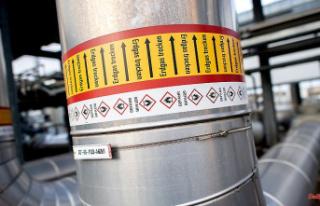Europe is striving to get its raw materials from more suppliers than before. This is intended to compensate for the loss of Russia as a partner and to reduce dependence on China. Basically, it is about natural resources. But the list also includes dairy products and intellectual property protection.
The EU and Chile want to expand their trade relations. An agreement provides for companies from the international community to have greater access to the South American country's raw materials. The main focus is on lithium and copper, which are important on the way to climate neutrality. The partnership also includes cooperation in the areas of justice and research. After the Russian attack on Ukraine, the EU is trying to become less dependent on energy and raw materials from Russia as quickly as possible. The strong dependence on China is also to be corrected.
The General Manager of the Association of German Chambers of Industry and Commerce, Martin Wansleben, spoke of an important signal. Among other things, there are improvements in the protection of intellectual property. It also helps to secure the lithium supply, which is important for the mobility transition in Germany. The German trade volume with Chile is currently almost four billion euros.
More than 60 percent of the European Union's lithium imports come from Chile. The country is the world leader in the production of copper and number two in lithium. In the case of the latter, however, China dominates the processing of battery materials with almost two thirds.
The previous trade agreement between the two partners will be expanded again. Since 2003, around 96 percent of product types have already benefited from trade facilitation. Now the rest will be tackled, with the exception of sugar. Larger quantities of Chilean poultry are to be delivered to the EU. This also applies to other types of meat and olive oil. In return, the EU can sell more dairy products in the Andean country, especially cheese. Liberalization is also planned for services - for example in the areas of telecom and finance.
The trade aspects of the deal will need the endorsement of the European Parliament and EU governments before they can come into force. This usually takes a few years.












